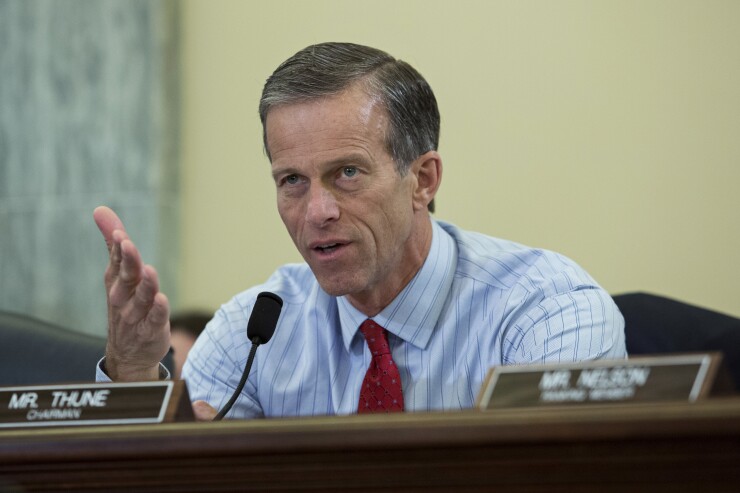The development of autonomous vehicles is a priority of the Biden administration but Congress should pass legislation to clarify federal oversight of the emerging technology, Transportation Secretary Pete Buttigieg said.
But some senators say they want the U.S. Department of Transportation to take the lead on the issue.
Self-driving cars "are a priority for us, and we are doing what we can with the authorities and flexibilities we have, but we lack a fully established legislative framework for that,” Buttigieg told senators Tuesday during a Committee on Commerce, Science and Transportation hearing. “We would welcome one that would clarify our authorities.”
The hearing was held to consider the DOT's FY23 appropriations in President Joe Biden's budget, though most questions focused on topics like efforts to strengthen the supply chain, fight inflation, hire more transportation workers and encourage the deployment of autonomous vehicles.
The Infrastructure Investment and Jobs Act does not dedicate significant funding to AVs, though it does fund research into the technology and establishes a new Center of Excellence on New Mobility and Automated Vehicles.
Legislation that would create a regulatory framework for self-driving cars has stalled in Congress for more than five years. Senators from both parties Tuesday urged Buttigieg to support the development of the technology in the U.S. — as well as create new union jobs — by developing a regulation that clarifies policies for companies.
Self-driving cars can help advance key Biden administration goals like safer roads and increased mobility, senators said.

“In the absence of legislation, I believe it’s essential for the department to develop a framework for the deployment and testing of AVs,” said Sen. John Thune, R-S.D., who has sponsored bipartisan AV legislation as far back as 2016.
Clear policies around things like safety exemptions would help “ensure the U.S. maintains its leadership” in the sector, Thune said.
Buttigieg said part of the problem is that the U.S. DOT regulates vehicles while state DOTs regulate drivers. “That makes sense until the vehicle is the driver,” he said.
“There is more that we can be doing with our existing authorities, but also we very much believe we need to work with Congress to have a legislative framework that adequately contemplates these kinds of vehicles becoming more widespread.”
A group of 12 senators last week sent Buttigieg a
“We lag behind in shaping a regulatory framework that will foster this innovation while simultaneously protecting and encouraging all of the important benefits we believe autonomous vehicles are capable of delivering,” the senators said, saying it would improve safety, expand equity and reduce the need for parking lots. "Autonomous vehicles hold great promise to deliver significant benefits for all Americans — but only if the federal government puts the necessary policies in place to achieve these benefits."





